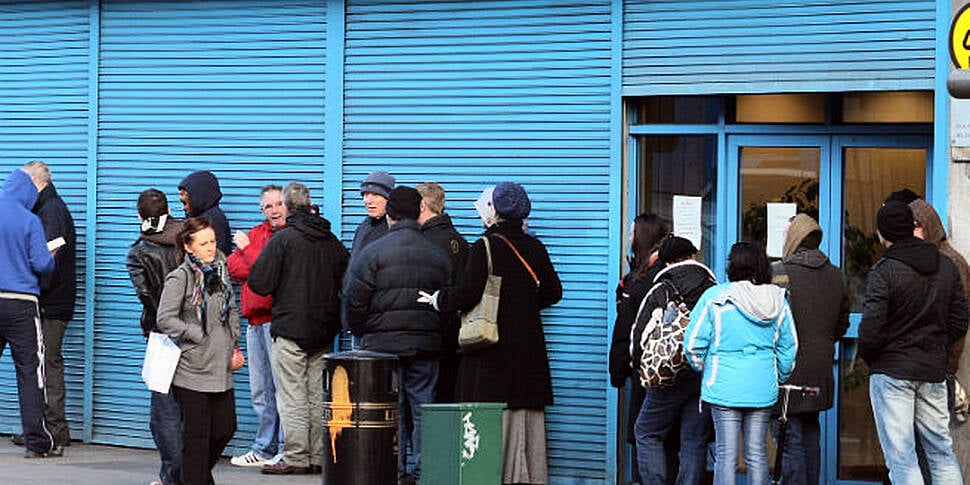From Wednesday, as per last autumn's Budget, the jobseeker's allowance (JSA) for single people over the age of 26 climbs by a fiver to €193 per week.
Consumer advocate and askaboutmoney.com founder Brendan Burgess argued in last week's Sunday Independent, however, that the size of dole payments should be heading – at speed – in the opposite direction as he called for the allowance to be slashed and "private pot" system to be introduced.
Speaking to Breakfast Business, Burgess outlined his rationale.
"The main reason is just that the dole is way too high," he said. "Whether we could afford it or not in the country, it's just way too high...
"We give an incentive in this country never to work. If you're married and you've got a couple of kids, you're going to get free housing – you've got to make a contribution towards it but it's generally free – you've got free medical insurance... It just does not make it worth your while to actually work in a relatively low-paid job.
"And, of course, the problem with that is, wages have to rise to make it attractive to work. When you push up wages, you push up costs. So you end up with a vicious circle."

Looking north of the border by way of comparison, Burgess painted a picture of the Republic having an unrealistically high jobseeker's allowance.
"A single person is getting a dole of €193 – the same person in Newry 13 miles down the road is getting the equivalent of €90," he said. "So in the Republic we're paying twice the level of dole as somebody is getting in the North of Ireland."
"You've got to decide how much is required of this country. And are we actually giving people an incentive to work or an incentive to stay on the dole? We have very high levels of social welfare payments – I'm talking about non-contribution social welfare, by the way – and we have extremely low levels of social insurance PRSI."
"For example," Burgess continued. "Someone earning €40,000 a year in Ireland is paying €1,600 in PRSI... Whereas the same person in the North is paying twice [the equivalent of €3,700]. So in the Republic, we're paying half the amount of insurance and getting twice the benefit. This makes absolutely no sense at all."
Burgess is of the belief that this is "completely and utterly" unsustainable:
"We are in this county still borrowing money to run the country day-to-day and we're in a situation where we have very low interest rates, so the cost of our national debt is very low. We have artificially high corporation taxes because of the way that we're hollowing out the tax receipts of other countries, we've booming exports, and coming down the line, we've got Brexit and we've got all of the problems that could be caused by an increase in protectionism internationally...
"The next time we hit a problem – which we can foresee – we're going to be in deep trouble and we're not going to have the troika going to bail us out...
Burgess is proposing a system that would target "people who make no contribution to the social welfare system, who never work", by shifting from a pooled system to an altogether more personal one: as you work, your PRSI contribution would go into a fund in your own name.
"Then if you lose your job, you would be getting a refund from your own personal account. That money would be coming back to you, it's your own money. So it would always be in your interests to work because, while you're working you're contributing to your fund and when you're not working you're taking from your fund."
Once you reach retirement age, Burgess proposes, your pension would be determined by the amount of money in that fund.

When asked whether this was fair on people who are let go unexpectedly or when the economy is such that there are no opportunities to work, he countered:
"I'm looking at a situation where people have no difficulty finding work. There is plenty of work in Ireland...
"I am saying that you still have a dole for people who have absolutley nothing in their pot, but it would be at a much lower than the present rate.
"What I'm saying is that people who work hard all their lives, who contirbute to a social insurance fund, should have higher benefits and much higher pensions than some people who just choose not to work.
"We also have a problem in this country with a black economy where you've got people who are getting the dole and they're also earning money tax-free. I think that by creating a personal insurance fund, you'd make that far less attractive. You'd never wipe it out but you'd make it far less attractive."










